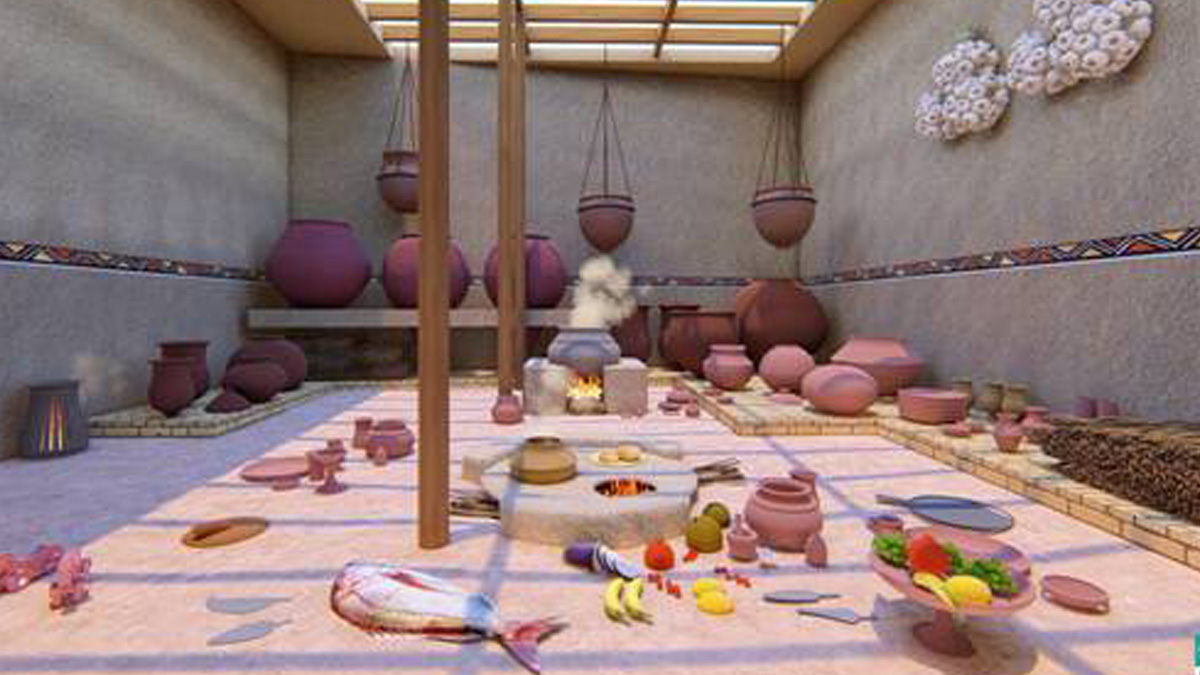
Late Harappan kitchens have come to life in an exhibition at the National Museum in New Delhi.
The unique exhibition at the National Museum, New Delhi, on India’s ancient food history is titled Historical Gastronomica - The Indus Dining Experience.
The exhibition began on Wednesday (February 19) and will continue till Tuesday (February 25).
The exhibition will showcase India's food history of over 5000 years.
The National Museum houses an impressive collection of Indus valley Civilization artefacts.
The Indus Valley Civilization gallery has one of the world’s most significant collections of this glorious Indian civilization.
This thematic gallery also displays the famous Bronze Dancing Girl, which was excavated from Mohenjodaro, a Harappan site.
‘Indus Dining Experience’ - curated jointly by the National Museum and One Station Million Stories (OSMS) - is based on archaeological research, museum artefacts and their characteristics.
The exhibition in the National Museum features an illustrative story of man’s food history since his evolution and continues to conclude at the Indus-Saraswati Civilization.
It will also showcase the use of Harappan pottery and artifacts.
The exhibition will also showcase a model of a late Harappan kitchen and other specially designed exhibits.
These have been recreated by OSMS and these will take viewers back to the Harappan era.
The exhibition demonstrates how the first humans evolved due to food habits, learnt to distinguish edible from non-edible substance, food processing techniques and related architecture of the Harappans.
It shows how Climate Change defined and continues to define Food Security. The exhibition will resonate with anyone working towards the future of food.
Genomic data from diverse present-day South Asians reveal that there is a continuity in our ancestral lineage linking us to the Iranian agriculturalists and South Asian hunter-gathers.
Combined with the traditional knowledge of cooking styles and methods still practised in present-day villages of Rajasthan, Haryana, Punjab, Sindh and Baloch, it is possible that our basic diet bears more similarities to present-day consumption than differences as these areas matter of innate taste.
One of the main draws of this exhibition is tasting the food of the Indus-Saraswati Civilization - recreated by National Award-winning Chef Saby (Sabyasachi Gorai)
Saby, who has a cult following in the culinary world, is the President - Young Chefs’ Forum of the Indian Federation of Culinary Associations (IFCA).
One Station Million Storiesis a Delhi-based dynamic team that specializes in the craft of storytelling through extensive technical research.
This event organized by National Museum, OSMS and Fabrica by Chef Saby is truly a Made in India event with an international appeal.
The Story Mug, a Guwahati-based blogzine, believes in telling stories that matter.